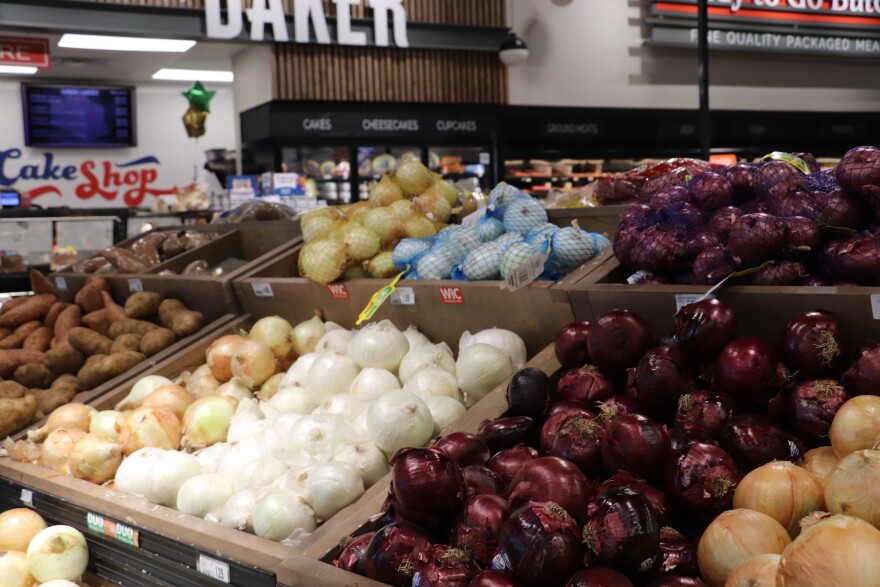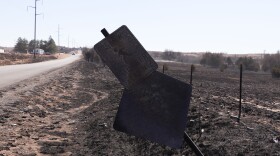Summer food assistance administered through tribal nations improved food security among participants, according to a new case study.
The summer EBT program, also called SUN Bucks, started nationwide last year. During the school year, millions of students receive free or reduced priced lunch but when the school year ends, that option disappears.
The SUN Bucks program is to help prevent summer hunger. It offers low-income families $120 per eligible child over the summer months for groceries like produce, meat and dairy products. While the federal government covers the half of administrative costs and the full benefit cost, territories, tribal nations and states pay the other half of administrative costs.
The Indigenous Food and Agriculture Initiative and anti-hunger advocacy group Food Research & Action Center released a study on the success of SUN Bucks programs administered by tribes in 2024.
The study uses data from an Urban Institute report to show households receiving the benefit had lower rates of food insecurity than those not receiving it. Participating households were also more likely to have adequate access to fruits and vegetables.
The Cherokee Nation has administered the program since it launched in 2024 and participated in the USDA's pilot program in the years before. Principal Chief Chuck Hoskin Jr. said the program has been well-received and served around 50,000 students this summer.
"Every time we talk about Summer EBT publicly, there's great interest in it," Hoskin said.
The case study also looks at ways to improve the program for future tribal participation.
Hoskin said if money goes to low-income people in a community for the purpose of buying food, that money will be spent locally.
"I think it goes to the core issue here, which is spending power at a time in which grocery prices continue to go up and there continues to be a fair degree of economic uncertainty," Hoskin said. "If anyone wants to stop talking about inflation and do something about it, they should roll up their sleeves and help administer the Summer EBT Program."
When the program began, the State of Oklahoma and a dozen other states declined the funding. But the Cherokee and the Chickasaw Nations administered their own programs. The two tribes teamed up with each other and advocacy group Hunger Free Oklahoma to reach students in the Muscogee Nation. Altogether, the tribes served "the vast majority of the 150,000 students eligible" in those areas.
"The choices that we made at Cherokee Nation, the expenditure that we made and the fact that we turned $1.8 million into $6 million for everybody who was in need — I think that story needs to be told," Hoskin said.
For the second year in a row, the state did not participate. But the Cherokee Nation and Chickasaw Nation opted in again, and more Oklahoma-based tribal nations – the Choctaw Nation, Muscogee Nation and the Otoe-Missouria Tribe – administered their own SUN Bucks programs.
Oklahoma is one of the top 10 hungriest states in the nation, according to Feed the Children.
Native households experience food insecurity at a higher rate compared to all U.S. households. In 2022, 28% of Indigenous households were food insecure, compared to 13% of all U.S. households, according to a U.S. Government Accountability Office study.
The U.S. Department of Agriculture estimated nearly 21 million children were expected to receive the benefit in 2024.
"It really helps close the gaps from the summer nutrition programs," said Kelsey Boone, a senior child nutrition policy analyst at the Food Research and Action Center.
The One Big Beautiful Bill Act signed into law last month makes major changes to the nation's largest food assistance program, the Supplemental Nutrition Assistance Program, including shifting more SNAP costs to states. Boone said the spending law includes cuts to the program and reverses decades of progress against hunger.
"And those cuts are going to continue to ripple through communities which will hurt families and local economies, as well as increase hunger," Boone said. "These cuts create budget pressures that could impact states' ability to fund and manage programs like Summer EBT in the future."
She said while state agencies should continue to operate the program, policy updates are needed to allow more non-state entities to join SUN Bucks.
The recent study echoes that sentiment, saying statutory changes and specific support could allow more tribes to participate, since tribal-run EBT programs are "fundamentally different" from state ones.
"Tribal-specific support and technical assistance are essential," the study authors wrote.









